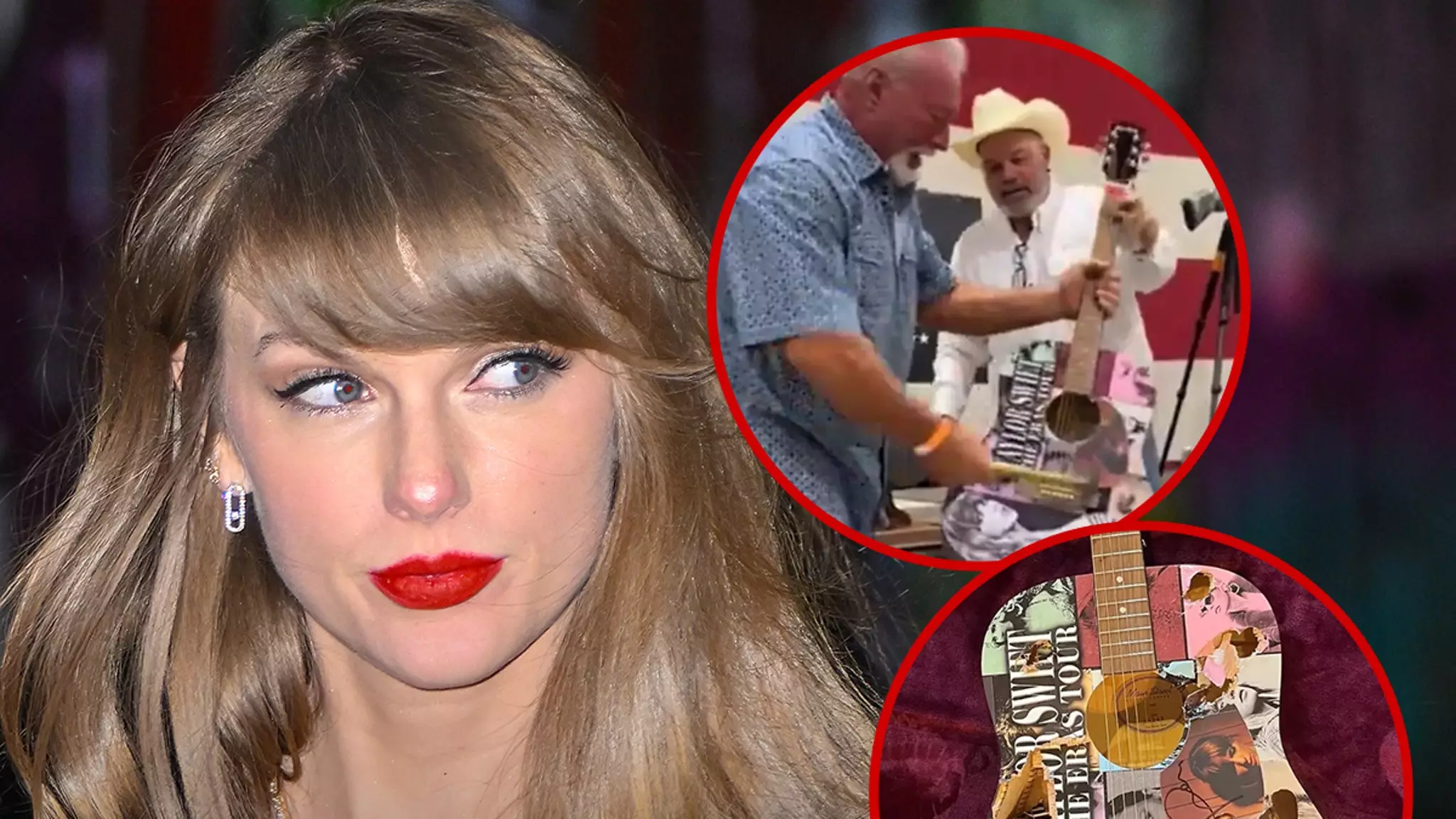In an age where celebrity endorsements can significantly impact political landscapes, the recent incident involving Gary Estes and a signed Taylor Swift guitar has generated substantial media coverage and public discourse. Estes, a 67-year-old Texan, gained notoriety after spending $4,000 at a charity auction to purchase a guitar purportedly signed by the pop star, only to proceed to smash it with a hammer as a form of protest. This act, which may have originated as a prank, has since been the focal point of criticism and debates about celebrity influence in politics.
Estes has faced backlash for his actions, which many have interpreted as an aggressive statement against Swift and her political leanings. However, he insists that there were no “malicious” intentions behind his decision, framing the destruction as a harmless joke. Estes claims he was merely following along with playful banter during the auction, where he states the atmosphere was light-hearted and everyone involved was laughing. This defense raises questions about the perception of humor in politically charged environments and whether actions portrayed as light-hearted can genuinely lack deeper implications.
Craig Meier, the auctioneer overseeing the event, corroborated Estes’ explanation and positioned the act within the context of political commentary. He emphasized that the guitar-smashing was meant to serve as a light-hearted joke aimed at Swift, who has increasingly used her platform to express political views. This perspective highlights an interesting dynamic: what one individual perceives as humorous, another may view as a disrespectful dig at an influential public figure. It leaves room for discussion on the appropriateness of using humor in political protests while navigating public sentiment.
Swift’s political moves have not gone unnoticed, particularly following her endorsement of Vice President Kamala Harris, which ignited divisive reactions within her fanbase and among political opponents. Supporters who identified with Trump’s ideology expressed their disapproval through acts of aggression against her merchandise, indicating that Swift’s influence on modern politics is substantial enough to elicit strong emotional responses. This begs the question: to what extent should celebrities, particularly those like Swift who wield considerable sway, consider the political ramifications of their endorsements and public statements?
Estes’ antics reflect a growing trend where individuals are willing to publicly destroy celebrity merchandise as a form of protest. This has implications for how the public engages with both celebrity culture and political discourse. As tensions rise, individuals may increasingly resort to acts of destructive expression rather than simply voicing dissent. Furthermore, in a world dominated by social media, these instances can quickly go viral, amplifying the controversy and drawing more attention to the original subjects involved.
What started as a light-hearted jab at a celebrity has spiraled into a multifaceted conversation surrounding politics, humor, and celebrity influence. While Estes’ intentions might have been benign, the subsequent reactions reveal the complexities of public sentiment and the potential consequences of mixing entertainment with political expression. The auction, the subsequent destruction of the guitar, and the ongoing online discourse serve as a reminder that art, celebrity, and politics are often intertwined in ways that can lead to both laughter and outrage.

